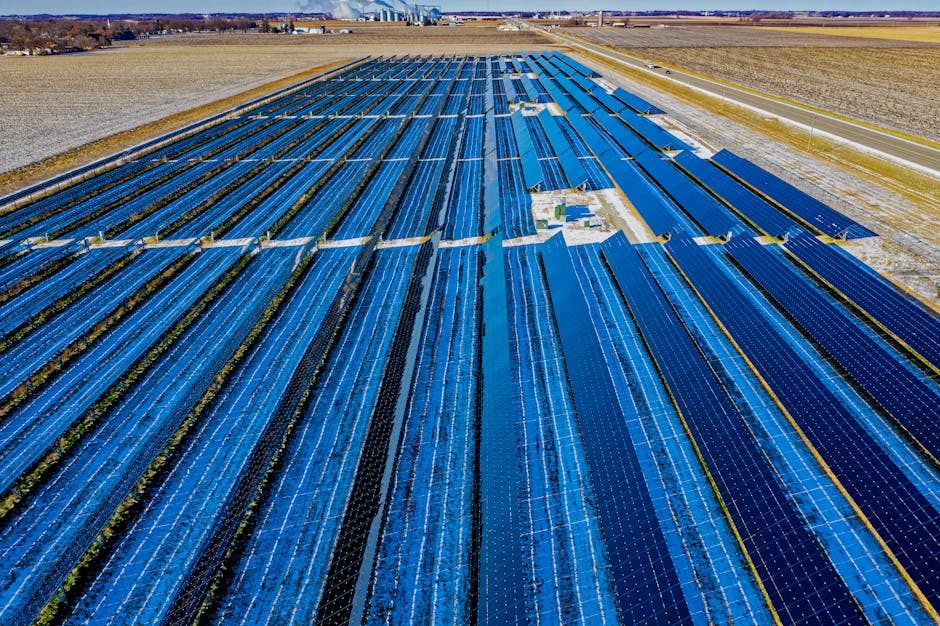Autonomous EVs: Transforming Personal Mobility & Emotional Wellbeing
As urban landscapes evolve and technology intertwines with our everyday routines, the concept of personal mobility is undergoing a transformative revolution. Imagine a world where you’re not just a driver but a passenger in your own life, thanks to autonomous electric vehicles (EVs). These innovative machines promise to redefine not only how we travel but also how we feel during that journey. Dive into the future with us as we explore how autonomous EVs could enhance not only our daily commutes but also our emotional well-being.
The Intersection of Technology and Emotions in Mobility

Modern life has introduced us to an array of conveniences, yet many individuals find themselves grappling with stress, anxiety, and a pervasive sense of disconnection. As we navigate through bustling streets, surrounded by noise and chaos, the very act of driving can exacerbate feelings of frustration and emotional drain. The introduction of autonomous EVs provides a potential salve to these emotional struggles.
Picture this: You hop into an autonomous vehicle, the stresses of navigation and traffic taken care of by an intelligent machine. You have the liberty to read a book, enjoy your favorite music, or simply relax and let your mind wander. This shift from driver to passenger creates a sanctuary of peace in a world that often feels overwhelming.
Automakers are increasingly acknowledging the importance of emotional design into their vehicle interiors, enhancing the overall user experience. By incorporating elements such as biophilic design—where architectural principles borrow from nature—autonomous EVs can create environments that are soothing and calming. For more insights on this, check out Harnessing Nature’s Power: Biophilic Designs in EVs.
The Benefits of Autonomous Driving on Mental Health

Research consistently indicates a proven link between a person’s environment and their mental health. Stressful commutes can be mentally draining, time-consuming, and downright irritating. The question arises—how can autonomous EVs serve as a remedy for these issues?
-
Reducing Commuter Anxiety: The mere presence of an autonomous vehicle can diminish the anxiety traditionally associated with driving. Eliminating the burdens of navigation, time constraints, and traffic management fosters a more relaxed state of mind. The prospect of engaging with technology rather than operating machinery transitions the commute from a task into a leisurely experience.
-
Time for Yourself: Autonomous vehicles allow passengers to reclaim their time. Instead of focusing their cognitive energy on driving, individuals can engage in personal activities. Reading, meditating, or even catching up on work can transform what was once an unproductive time into an opportunity for personal growth and enjoyment.
-
Enhanced Social Interactions: For families, the communal ride in an autonomous EV can enhance emotional bonding. Instead of being solely fixated on the road, family members can interact freely, fostering deeper connections. Sharing stories, singing along to music, or discussing the day ahead can create a pleasant environment.
A noteworthy study by the National Institute for Mental Health suggests that mindfulness practices during high-concentration tasks can lead to substantial reductions in anxiety and an improved sense of well-being. Autonomous EVs offer a platform for integrating mindfulness into everyday life.
Urban Design and Emotional Well-being: A New Paradigm

As autonomous EVs become more prominent, urban design must evolve concurrently. The interaction between autonomous vehicles and urban environments has profound implications not just for transportation but also for the psychological landscape of cities.
-
Construction of Open Spaces: By reducing the need for expansive parking lots and congested roads, cities have the opportunity to repurpose urban spaces into parks, walkways, and gardens, effectively enhancing community interactions. The presence of greenery is crucial for emotional well-being, leading to decreased stress and increased happiness. These changes mirror findings from Discovering Urban Evolution.
-
Soundscapes and Tranquility: Unlike traditional combustion engines, EVs operate quietly. This reduction in noise pollution can contribute to an overall calmer urban atmosphere. Research highlights how sound plays a significant role in mental health, indicating that a more tranquil soundscape can lead to lower stress levels and an improved quality of life in metropolitan areas.
-
Accessibility and Inclusion: Autonomous EVs have the potential to enhance mobility for vulnerable populations, including the elderly and individuals with disabilities. By providing easier access to transportation, these vehicles can promote independence and enhance social connections—critical elements for emotional wellness.
Ethical Considerations: Building Trust in Autonomous Technology
While the prospects of autonomous EVs are tantalizing, it’s crucial to address the ethical implications surrounding their use. Trust and acceptance are pivotal for any new technology to impact emotional well-being positively.
-
Understanding AI Decisions: One significant hurdle lies in the black box nature of artificial intelligence. Passengers must trust the vehicle’s AI to navigate safely and ethically, creating a need for transparency in decision-making processes. Enhanced communication around how and why decisions are made can foster trust in these autonomous systems.
-
Privacy Concerns: As autonomous vehicles collect vast amounts of data to enhance user experience, questions about data privacy emerge. Addressing these concerns proactively ensures that future users feel safe and secure, reinforcing trust in autonomous technology.
-
Promoting Inclusivity: The autonomous EV landscape must consciously aim to avoid deepening existing social divides by ensuring equitable access to technology. Proactive solutions to bring marginalized communities into the EV fold can foster a sense of belonging and emotional security.
The Role of Autonomous EVs in Shaping Lifestyle Choices
The significance of transportation on lifestyle choices extends beyond the route taken; it permeates social interactions, environmental consciousness, and even individual health practices. As we lean into a future dominated by autonomous vehicles, a few pivotal lifestyle changes emerge.
-
Encouraging Active Lifestyles: With access to autonomous EVs, individuals might feel more inclined to walk or cycle short distances to transport hubs, promoting healthier, active lifestyles. Environmental awareness is also likely to grow as people become more educated about their commuting choices.
-
Green Living Choices: Electric vehicles tethered to renewable energy sources significantly reduce carbon footprints. Emphasizing sustainable living can trigger emotional benefits, creating a sense of fulfillment in individuals who are actively contributing to a healthier planet.
-
Community Relationships: As urban spaces evolve, opportunities arise for fostering local communities. Autonomous vehicles can serve as a shared resource, allowing communities to leverage technology to connect better with one another.
Next Steps: Embracing a New Journey
The future of personal mobility is a promise of enhanced emotional well-being through the integration of autonomous EVs. The ongoing dialogue around emotional design, trust, and community relationships offers opportunities for stakeholders—manufacturers, city planners, and citizens—to come together and sculpt a future that is not just technologically advanced but also emotionally enriching.
Select actions can help us transition towards this envisioned future: - Stay Informed: Follow developments in autonomous technologies and participate in local initiatives emphasizing sustainable urban mobility. - Engage in Dialogue: Join community forums discussing autonomous EVs and their implications on mental health and urban design. - Advocate for Accessibility: Work towards projects that ensure equitable access to autonomous technologies for all community members.
Final Thoughts
The impending wave of autonomous electric vehicles is not merely a transportation revolution; it holds the potential to enhance our emotional well-being, redefine our relationships with our environments, and create more connected and vibrant communities. As we voyage into the future, we must embrace both the technology and the profound implications it holds for our hearts and minds. Together, let’s build a world where every ride nurtures not just our mobility but also our souls.



